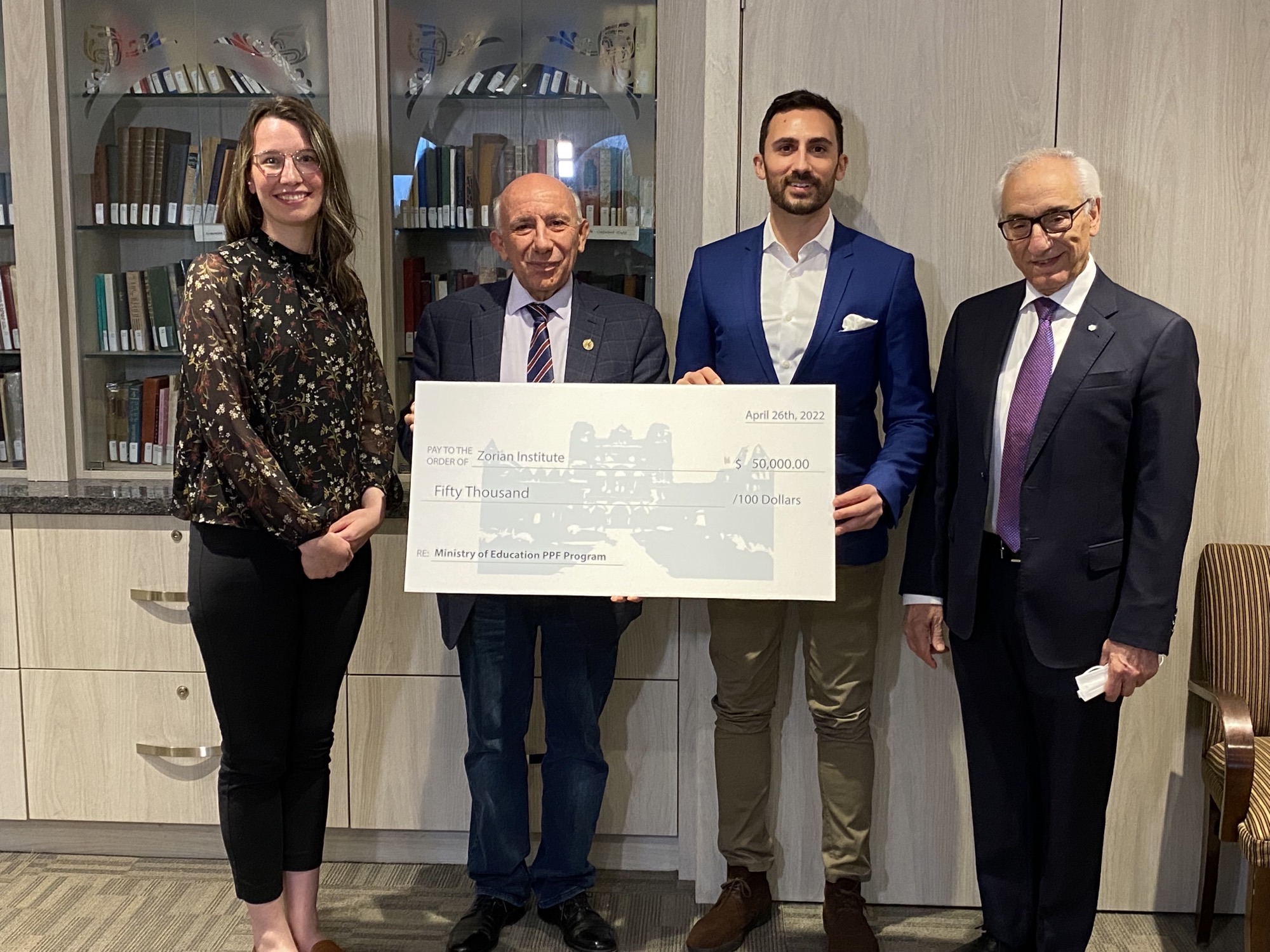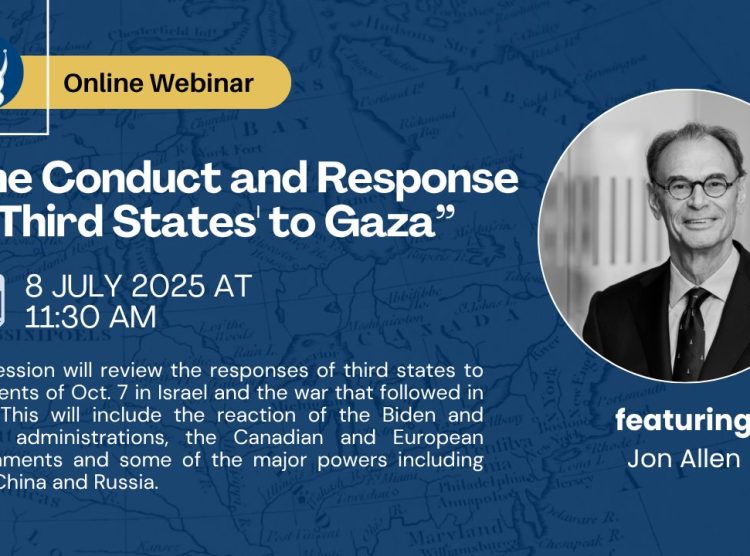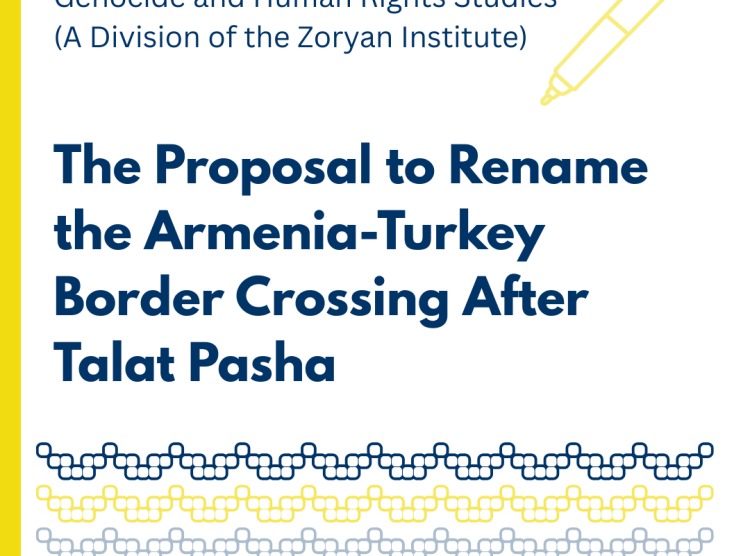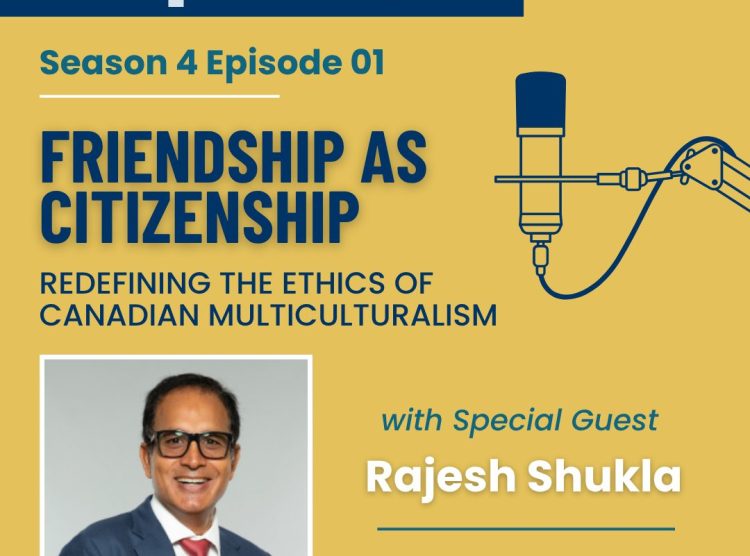April 27, 2022: The Zoryan Institute is pleased to announce the launch of a new Genocide Education Program titled, Promoting Equity, Tolerance and Reconciliation Through Genocide Education, funded by the Ontario Ministry of Education. This program, developed by the Zoryan Institute, will provide secondary school students across the Greater Toronto Area with a foundational understanding of the numerous, complex, and often emotional issues related to genocide and crimes against humanity.
With the support of the Zoryan Institute Board of Directors, genocide education specialists, secondary school level educators, and curriculum consultants, the Institute developed an effective and impactful lesson plan for this program. Megan Reid, the Zoryan Institute’s Deputy Executive Director, when asked about the reasons behind the development of this program, stated:
“The Zoryan Institute is the largest independent research institute focused on genocide and human rights research, scholarship, and education. With this new undertaking, our mission is to now bring this work to younger generations, and have them recognize the dangers associated with an “us” versus “them” mentality. This program will teach the negative consequences of hate, and emphasize the obligations of individuals of all ages to help prevent violence and promote equity, tolerance and understanding.”
This program is designed to be delivered to classrooms between May and June 2022, and will be led by notable graduates of the Zoryan Institute’s Genocide and Human Rights University Program (GHRUP). Each presentation will open with an interactive discussion introducing human rights and genocide, and will explore select cases of genocide, such as the Armenian Genocide, the Holocaust, the cultural genocide of the Indigenous Peoples of Canada, among others, in a comparative and multidisciplinary manner. This will be done using both written and oral testimonies and first-hand accounts of those impacted by genocide. This approach will also allow students to compare and understand commonalities in the processes and experiences of genocide and will contribute to a better understanding of the universality of the phenomenon.
Alison MacAulay, a PhD Candidate in History at the University of Toronto, and graduate of the Zoryan Institute’s 2017 GHRUP, is working closely with the Institute on this initiative. She had this to say about the program’s impact:
“The Promoting Equity, Tolerance and Reconciliation Through Genocide Education program is an opportunity for high school students across the GTA to think critically about what it means to be active and engaged global citizens. Zoryan’s innovative, multi-media approach to human rights and genocide education encourages students to confront difficult pasts and presents with empathy, understanding, and intellectual rigor. This program can take students beyond their classrooms and into their daily lives to work towards making a more equitable and tolerant world.”
The Zoryan Institute is thankful for the consultation it has received from Ontario educators, Sossy Terzian-Kheir of William Berczy Public School of the York Region District School Board, and Christine Zaghikian the Curriculum Support Leader of Guidance at Earl Haig Secondary School of the Toronto District School Board, on the program’s structure and method of delivery to a high-school audience. Reflecting on the new program Ms. Zaghikian said:
“As our world continues to be plagued by ethnic violence and political unrest, it is important, now more than ever, to learn about the roots of genocidal events, and how concepts such as exclusion, intolerance and dehumanization can create a platform for hate crimes and violations of human rights. Through this program, students will learn about the causes and consequences of genocide, recognize injustice and be engaged in combatting hate a local level such that these kinds of atrocities are never repeated.”





